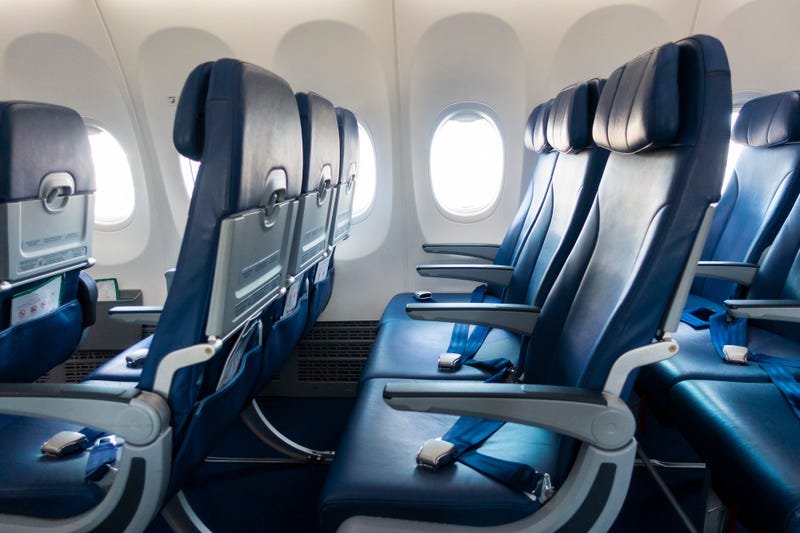
As the airline industry adjusted to the shock of the COVID-19 pandemic, a rule that requires airlines to operate a certain amount of flights or lose authorization to fly out of busy airports resulted in a strange phenomenon: ghost flights.
This week, The Guardian reported that more than 5,000 of these completely empty passenger flights have departed and arrived in the U.K. since 2019.
“Why ghost flights operate remains unclear,” said the outlet. “Only airlines know the reasons but they do not publish data that explains the practice.”
According to a U.K. Government and Parliament petition, airlines “must operate at least 80% of slots during the current season, or risk losing their historic rights: the so-called ‘80:20’ rule.” Per the U.S. Federal Aviation Administration, “slots” are an authorization to either take-off or land at a particular airport on a particular day during a specified time period.
Back in March 2020, just a few days before COVID-19 was declared a global pandemic, ABC News reported that federal regulators in the U.S. had waived the rule, which was already “causing airlines to fly nearly empty planes just to avoid losing takeoff and landing rights at major airports.”
Rule waivers in the U.S. have been extended though Oct. 29 for select airports, according to the FAA.

The now-closed U.K. petition asked for the government to reduce its slot rule to 0% as a permanent measure. It gained a little over 16,000 signatures towards a 100,000 goal.
“The U.K.’s exit from the European Union means that it has been able to take a more tailored approach that reflect the U.K.’s specific circumstances,” the U.K. explained. “The Air Traffic Management and Unmanned Aircraft (ATMUA) Act 2021 provides temporary powers to amend these rules where the evidence supports the need to do so. These powers last until August 2024, covering the Winter 2024/25 season.”
For the 2021-2022 winter season, the percentage was reduced from 80% to 50%, and the government “allowed airlines to hand back full series of slots before the start of the season if they are not going to fly them,” a measure that it said reduced the volume of empty flights as of this February.
Data analyzed by The Guardian found that 130 completely empty flights a month were recorded in connection to the U.K. since 2019.
“The number of empty flights remained at a similar level before, during and after pandemic travel restrictions, with the second highest level in the second quarter of 2022,” said the outlet, which this data said suggests that the pandemic is not the only cause of ghost flights.
In addition to 5,000 empty flights, around 35,000 commercial flights have operated almost empty since 2019, with fewer than 10% of seats filled, according to The Guardian’s analysis of data from the Civil Aviation Authority. The outlet also noted that “air travel results in more carbon emissions an hour than any other consumer activity and is dominated by a minority of frequent flyers, making it a focus of climate campaigners.”

“Putting tens of thousands of empty or near-empty planes in the air during a climate crisis is a vast waste of money and a needless source of emissions. It makes a mockery of people’s efforts to reduce their own emissions,” said Anna Hughes of the Flight Free UK campaign group. “If it makes business sense for the airlines to do this, there’s something badly wrong with the business model.”
According to the International Air Transport Association, “the 80/20 rule offers airlines the certainty to publish tickets almost [one year] in advance of operation which allows consumers to plan and buy travel in advance.”


